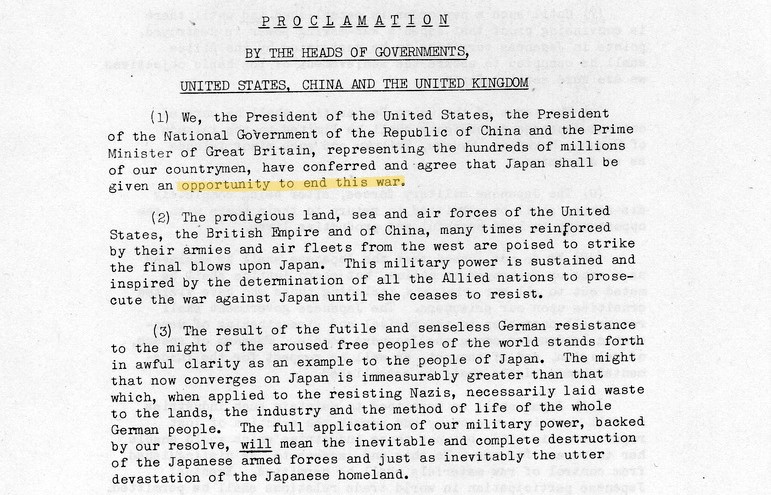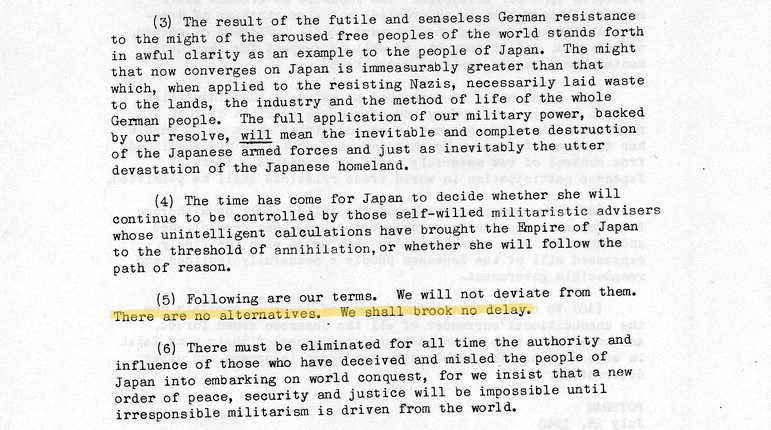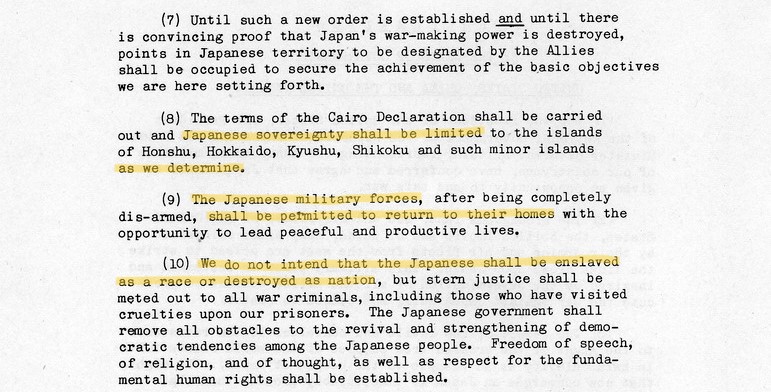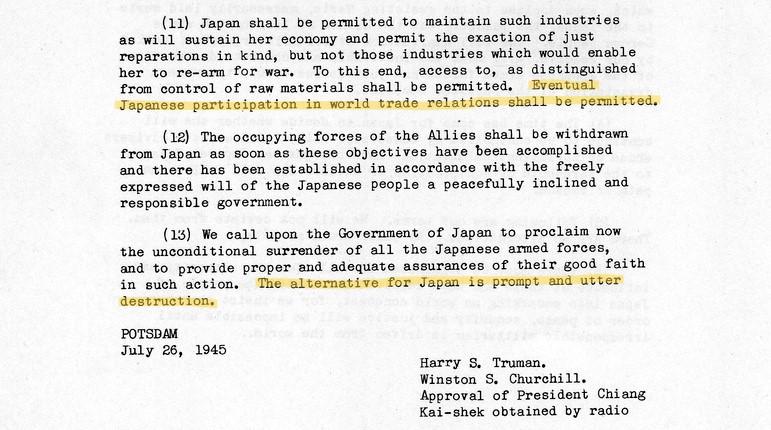Mokusatsu: The Deadliest Mistake
Potsdam Declaration
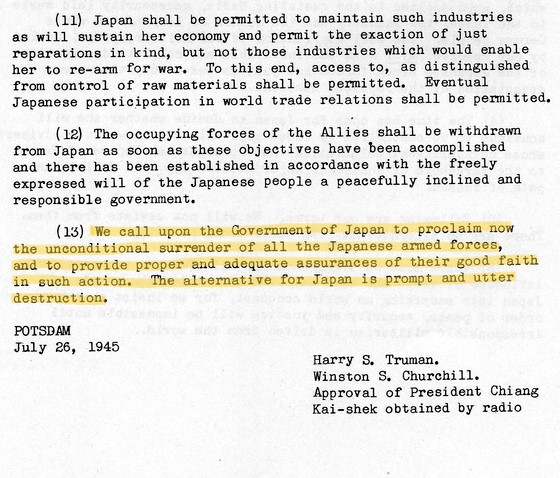
Courtesy of the Truman Library Institute.
Terms
Tokyo radio stations received the Potsdam Declaration on July 27, 1945. While it came as a surprise, several important facts stood out. It only asked for unconditional surrender of the armed forces, instead of the Japanese government as a whole. Moreover, Japan would not be destroyed as a nation, all industry excluding war making would be allowed to continue, and it strongly hinted that the Emperor would be allowed to remain on the throne, which had been the main topic of concern for discussions of surrender within the cabinet.
Japanese Response
Foreign Minister Togo and Prime Minister Suzuki agreed that they should leave the door open for further peace negotiations. While the Supreme War Council were set in the idea of rejection to boost morale, they eventually agreed to withhold an immediate answer due to the fact that they were still waiting for Russian reply to the mediation mission.
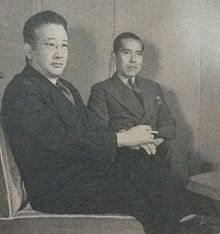
Kase Shun'ichi and Toshikazu. Courtesy of The Asahi Shimbum.
"It was as if the possibility of peace suddenly emerged into sight,"
~ Shun'ichi Kase, the American expert in the Foreign Office
